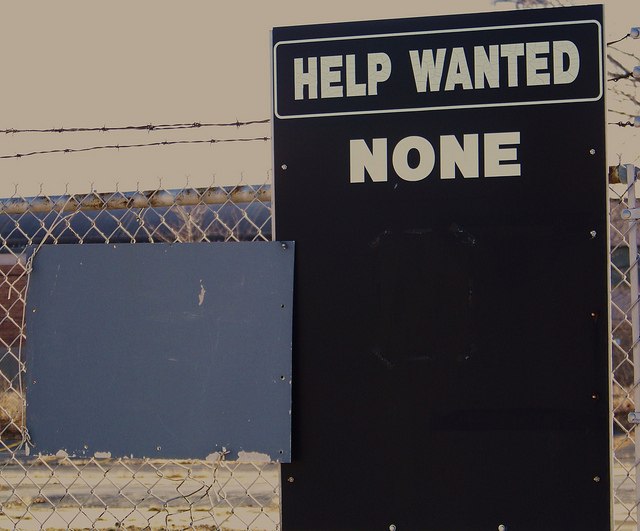Illinois Isn't Working So Well For The Employed, Either
By Selena Fragassi in News on Mar 24, 2015 9:15PM
If you’re finding your commute to work getting longer and longer, you’re not alone. According to a new report by Brookings, Chicagoans fare among the worst with holding jobs close to home; the number that falls within “normal” commute ranges fell 14 percent from 2000 to 2012, compared to a national average of just 7 percent. In areas like the South and West, the number of opportunities actually increased.
So what gives? Well for one Chicago still has a steady unemployment rate of 6.0% as of February 2015, several notches above the national rate of 5.5%, according to the Illinois Department of Employment Security (IDES). Further data in a “Where Workers Work Report,” also established by IDES, shows a discrepancy in where jobs are centralized.
Employment levels in Cook County, including the City of Chicago where a bulk of the state’s population lives, only jumped by 1.7 percent in 2014 whereas collar counties like DuPage rose 2.4 percent, McHenry rose 3.3 percent and Will rose 4.3 percent in the same time frame. The migration has even compelled transit lines like Amtrak to expand, most notably eager for approvals to begin a long-awaited rail line from Chicago through Elgin and Huntley into Rockford.
While some settle for the longer commutes, the bigger impact is the folks that are leaving Chicago behind altogether, many citing better economic opportunities. According to United Van Lines 2014 National Movers Study, Illinois ranked third for states that have the most households relocating and it’s the sixth year in a row that Illinois has been in the top five.
In December of last year, blogger Saya Hillman who is also the founder of life consulting company Mac & Cheese Productions, deemed 2014 “the mass exodus” in a post that went viral in local media. In it, Hillman surveyed 22 of the whopping number of 42 friends she had who made the leap from Chicago to other cities recently to find out why. While, yes, weather was certainly a factor (especially after last winter’s unrelenting polar vortex), others pointed to job dissatisfaction and job opportunities as the reasoning.
A new census report echoed Hillman’s findings. Illinois suffered a net loss of 94,956 people in state-to-state migration last year, the highest rate in decades, according to the Tribune. Though the number also involves births, deaths and other factors, the state-to-state loss was the biggest contributor. “[Illinois] has well-documented woes: a state debt crisis largely driven by unfunded pension obligations, the country's worst credit rating, weak job growth. Oh yes, and winter,” said the article. “Though let's interject that most people seek good jobs rather than good weather.” Lately in Chicago, neither one is looking very sunny.
